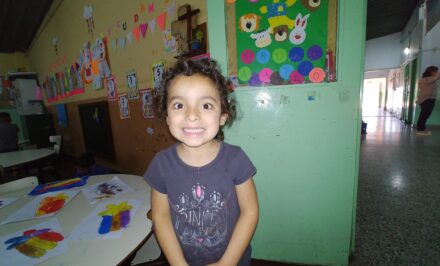FRANCIS IN THE ANGELUS, schoenstatt.org editorial team •
In a recent Sunday homily, the preacher (Fr. José Antonio Pagola, Spain) spoke about the “risk of settling down.” “Sooner or later, we all run the risk of becoming settled in life, seeking the comfortable refuge that allows us to live quietly, without any surprises or excessive worries, giving up all other aspirations. It is a time of searching for a pleasant and welcoming atmosphere. A peaceful life in a happy atmosphere. Making the home a favourite refuge, a place to read and listen to good music. Enjoying a good holiday. Ensuring pleasant weekends “. In other words, we become old and leave behind the time of youth when the restless heart is always searching.
One can also — and this is far more dangerous — run the risk of settling in the faith. “It is the eternal temptation of Peter that always creeps up on: setting up tents on mountain tops. That is, to use religion to find our inner well-being, ignoring our individual and collective responsibility to bring about a more human coexistence. And yet, Jesus’ message is clear. A religious experience is not truly Christian if it isolates us from our brethren, gives us a comfortable life and distances us from the service of the most needy,” the homily continued.
It reminded me of meetings in the Nine of July diocese in April this year, when we were talking about the church that is sent out after Easter and the danger of conforming to what one already has, you know, you know … and the challenge of leaving the safety of the tents, the oases and comfort zones in order to search, to grow, to conquer and finally leave everything for that treasure, which only youthful hearts can find: Jesus and his presence that unsettles us and keeps us on the move.
Paraphrasing Alois Zeppenfeld after the end of World War I, when the congregants who had left Schoenstatt to go to the trenches returned to continue what they were doing before: “Was all this just for the war years? After the war, now what?” This young man and his companions who had discovered the treasure of the Covenant of Love challenged the others not to settle but to go out… (In Schoenstatt’s history, this is the “Hörde” moment, the founding of Schoenstatt outside Schoenstatt and close to those who were most in need).
This has always been Pope Francis’s theme. It is what he repeated during the Angelus on 30 July, calling us to search for the treasure above all treasures and leave everything for the presence of Jesus, who transforms the heart and opens us to welcome and see the needs of our brethren.
Complete text of the Pope’s reflection before the Angelus, 30 July 2017
Dear Brothers and Sisters, Good Morning!
Jesus’ parabolic discourse groups together seven parables in the 13th chapter of the Gospel of Matthew, and concludes with today’s three parallel stories: the hidden treasure (v. 44), the fine pearl (vv. 45-46) and the fishing net (vv. 47-48). I will pause on the first two which highlight the protagonists’ decision to sell everything in order to acquire what they have found. The first case has to do with a farmer who casually happens upon a hidden treasure in the field he is working. As the field is not his property, he must purchase it in order to take possession of the treasure: he therefore decides to risk all his possessions so as not to lose that truly exceptional opportunity. In the second case, there is a merchant of precious pearls; as an expert, he has spied a pearl of great value. He too decides to wager everything on that pearl, to the point of selling all the others.
These parallel stories highlight two characteristics regarding possession of the Kingdom of God: searching and sacrifice. It is true that the Kingdom of God is offered to all — it is a gift, it is a present, it is a grace — but it does not come on a silver platter: it requires dynamism; it is about searching, journeying, working hard. The attitude of searching is the essential condition for finding. The heart must burn with the desire to reach the valuable good, that is, the Kingdom of God which is made present in the person of Jesus. He is the hidden treasure; he is the pearl of great value. He is the fundamental discovery who can make a decisive change in our lives, filling it with meaning.
Faced with the unexpected discovery, both the farmer and the merchant realize that they are facing a unique opportunity which should not be missed; hence, they sell all that they own. Assessing the inestimable value of the treasure leads to a decision that also implies sacrifice, detachment and renunciation. When the treasure and the pearl are discovered, that is, when we have found the Lord, we must not let this discovery become barren, but rather sacrifice everything else in order to acquire it. It is not a question of disdaining the rest but of subordinating them to Jesus, putting him in first place; grace in first place. The disciple of Christ is not one who has deprived himself of something essential; he is one who has found much more: he has found the complete joy that only the Lord can give. It is the evangelical joy of the sick who have been healed; of the pardoned sinners, of the thief for whom the doors of heaven open.
The joy of the Gospel fills the heart and the entire life of those who encounter Jesus. Those who allow themselves to be saved by him are freed from sin, sadness, inner emptiness and isolation. With Jesus Christ, joy is always born and reborn (cf. Apostolic Exhortation Evangelii Gaudium, n. 1). Today we are called to contemplate the joy of the farmer and the merchant in the parables. It is the joy of each of us when we discover the closeness and the comforting presence of Jesus in our lives. A presence which transforms the heart and opens us to the needs and the welcoming of our brothers, especially the weakest.
Let us pray for the intercession of the Virgin Mary so that each of us may know how to bear witness, in daily words and gestures, to the joy of having found the treasure of the Kingdom of God, that is, the love that the Father has given us through Jesus.
English translation from www.vatican.va
Original: Spanish, 6 August. Translation: Sarah-Leah Pimentel, Cape Town, South Africa















